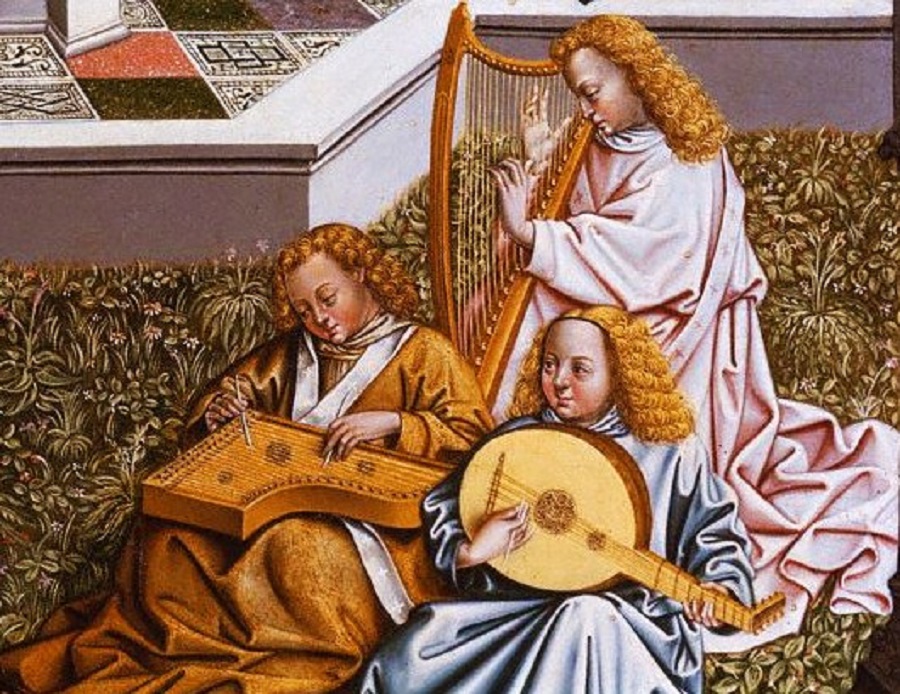Proofs of the Soul’s Immortality
January 19, 2016
FROM My Catholic Faith: A Manual of Religion by Louis LaRavoire Morrow (1949), here are some proofs of the soul’s immortality, briefly stated:
How can we prove that the soul of man is immortal? — We can prove that the soul of man is immortal, because man’s acts of intelligence are spiritual; therefore, his soul must be a spiritual being, not dependent on matter, and hence not subject to decay or death.
If even matter cannot totally disappear, however small the particle, how can the soul of man, of a far higher order, be thought to suffer extinction?
1. Man has mind and will. He can reflect, reason, plan for the future, make judgments, remember. These prove his soul spiritual. Such a soul cannot die as the body does. Man longs for an ideal state of perfect happiness, such happiness as is impossible to attain on earth. This universal longing must have been placed in men’s souls by God Himself; it is a desire for the infinite happiness of a union with the Creator. If, therefore, man’s soul were not immortal, he would have no chance to realize his dream of bliss, and God would be cruel in implanting the longing for it in his breast.
2. There have been many instances of the dead appearing to the living. In the Gospel, Moses and Elias appeared on Mount Thabor to Christ and three of His Apostles. At Christ’s death, many who were dead rose and appeared in Jerusalem. The Blessed Virgin has through the centuries continued to appear to men; such instances are almost innumerable. Saints have also returned to earth to comfort or instruct the living; even souls in purgatory have returned, to beg for prayers. We must, however, be very careful about believing in particular instances of appearances by the dead; the devil can and often does use this instrumentality to trick the gullible.
3. Belief in the immortality of the soul and a life after death is universal among mankind, including the most primitive peoples. In the Bible are many instances of the belief of the Jews in another life, where the souls of the dead would be. For instance, one of their laws forbade holding with the dead. The Greeks and Romans believed in Tartarus and Elysium, places for the dead. Other nations have different cults to the dead, especially during their burial ceremonies. Such cults would be meaningless did those who took part in them not have an idea of another life for departed souls.
4. If the soul were not immortal, the wicked who commit evil all their lives would go unpunished. The just who suffer continually on earth would not receive any reward. This would be injustice impossible to the perfect justice of God. If even man, imperfect as he is, can see innumerable examples of injustice in life, could not God? Would He not have a way of correcting such injustice? And if so, since it cannot be corrected in this life, there must be another, where immortal souls go to obtain perfect justice.
5. Holy Scripture, the Word of God, teaches that the soul is immortal. ”And many of those that sleep in the dust of the earth shall awake: some unto life everlasting, and others unto reproach, to see it always” (Dan. 12:2). Our Lord Himself said to the good thief, “This day thou shalt be with me in Paradise” (Luke 23:43). “And do not be afraid of those who kill the body but cannot kill the soul” (Matt. l0:28). “He is not the God of the dead, but of the living” (Matt. 22:32).
— Comments —
Paul writes:
From an attorney’s perspective, some of the author’s arguments are insufficiently articulated, though his conclusion is true. For example, “Man has mind and will. He can reflect, reason, plan for the future, make judgments, [and] remember. These prove his soul spiritual.” These tasks can be done by computers, which did not exist when the author wrote.
Most of us don’t have a major divine revelation during our lives, but we do have small ones on a daily basis when we go through the day open to the revelations. We know we could not exist without God’s blessings as we are faced with constant danger. Of course the Bible, Mass, and Our Lady’s appearances bolster our faith, a transcendent concept (by definition), which perhaps cannot be proven via logic.
Of course, Pope Pius XII would disagree with me.
Laura writes:
A computer cannot itself reason or reflect.

